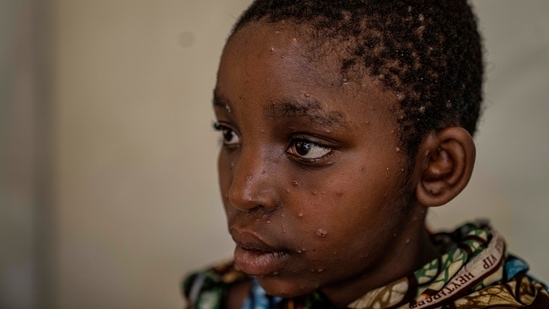
Is there an Mpox vaccine, and how does it work? All you need to know
8 months ago | 84 Views
Have vaccines for Mpox been developed? The short answer is yes, they have. The European Union, United States, Canada and others approved the use of the MVA-BN vaccine back in 2022 during the first declared global health emergency for Mpox.
The long answer is a bit more complicated.
What are Mpox vaccines?
Vaccines to protect against an Mpox infection do exist, but currently no available vaccines specifically target the monkeypox virus. How is this possible?
The monkeypox virus belongs to a genus of viruses called Orthopoxvirus, which are all complex DNA viruses.
Among others, viruses in this genus include the variola virus, which causes smallpox, the cowpox virus, and the vaccinia virus.
Viruses from this genus have a great share of genetic similarity, which makes it possible for vaccines developed against other viruses to also be used to protect from Mpox infection.
How do Mpox vaccines work?
Vaccines which protect against Mpox rely on a phenomenon called cross-reactivity.
Cross-reactivity happens when different antigens — different species of viruses, for example — appear similar to our immune system.
Imagine this: As viruses from the Orthopoxvirus are structurally similar, if a person is infected by the variola virus, for example, the antibodies that their cells will produce against the virus will also be able to protect them against a monkeypox virus infection.
Cross-reactivity between antibodies to Orthopoxvirus allows a vaccine developed to fight smallpox, for example, to also work with Mpox infections.
So I can't get Mpox if I'm already vaccinated against smallpox?
The answer currently seems to be: there is no guarantee.
Smallpox was declared eradicated in 1980 after a decadeslong global mass vaccination effort.
After the 1980s, mass immunization against the disease stopped, which some researchers suggest could have increased the susceptibility of people to other forms of Orthopoxvirus, including the monkeypox virus.
In fact, people born after the end of the universal smallpox vaccination program have lower levels of antibodies against the monkeypox virus.
This could explain why men aged 18-44 accounted for the majority of cases in the previous 2022-2023 Mpox global outbreak.
But previous smallpox vaccination doesn’t mean that a person is fully protected from contracting Mpox.
Previous studies have suggested that the smallpox vaccine is about 85% effective in preventing monkeypox virus infection, but people who have received a smallpox vaccine seem to have milder cases of Mpox.
What vaccines do we currently have?
As of August 2024, there is only one vaccine approved for use against Mpox across all of the EU/EEA, United Kingdom, United States, Switzerland and Canada.
This is the MVA-BN vaccine, also known as Modified Vaccinia Ankara-Bavarian Nordic.
The vaccine consists of a weakened strain of the vaccinia virus — one of the viruses from the Orthopoxvirus genus, which the monkeypox virus belongs to.
The Modified Vaccinia Ankara vaccine was developed in the 1950s and '60s in Germany and was originally used to protect against smallpox infection.
Its current form, MVA-BN, was developed by the Danish biotech company Bavarian Nordic and has been in production since 2010. It is given in two doses, usually 28 days apart.
The World Health Organization lists another two vaccines approved by different regulatory agencies for the prevention of Mpox.
During the 2022 Mpox outbreak, Japan approved the smallpox vaccine LC16, and Russia licensed OrthopoxVac for immunization against smallpox, Mpox and other orthopoxviruses.
In the United States and Australia, ACAM2000, a vaccine which contains a live vaccinia virus, is recommended for people at risk for exposure to Orthopoxvirus infections.
Are vaccines in development?
Yes. One example is a new mRNA vaccine — BNT166 — specifically targeting antigens on the monkeypox virus, which is now under clinical evaluation.
You might be familiar with mRNA vaccines from the COVID-19 pandemic and the ensuing global vaccination effort.
Currently, the WHO doesn't recommend a mass vaccination program. It recommends that only people who are at risk or who have been in contact with the virus should be considered for vaccination.
Read Also: Even the food on your plate can work like medicines to get rid of diseases. Here's how
#




















